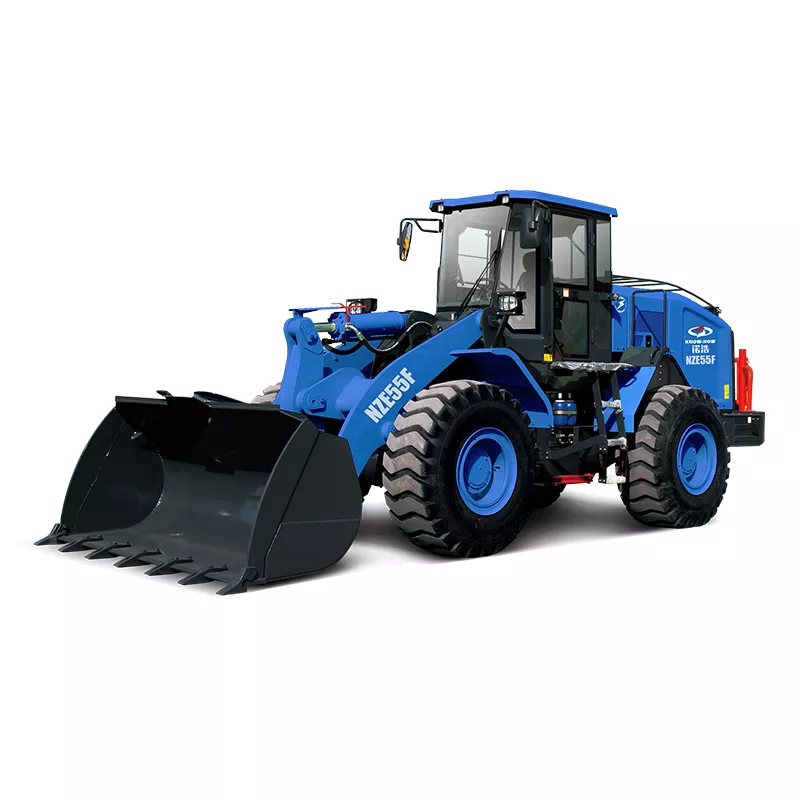Jun. 14, 2023
Machinery
An electric wheel loader is a heavy-duty construction and material handling equipment that operates on electric power rather than traditional fossil fuel. It consists of a powerful electric motor, a battery pack, and advanced control systems that enable smooth and efficient operation. These Mining machines are designed to handle various tasks, including loading and transporting materials such as gravel, sand, and debris, making them indispensable in construction sites, mining operations, and other industrial settings.

Electric wheel loaders find applications in diverse industries and sectors. Some common uses include:
Construction sites: Electric wheel loaders are crucial in construction projects for material handling, site preparation, and loading/unloading tasks.
Mining operations: These machines efficiently transport ore, coal, and other materials within mining sites, enhancing productivity and safety.
Landscaping and agriculture: Electric wheel loaders are used for tasks such as moving soil, mulch, and plants in landscaping and agricultural applications.
Waste management: They assist in handling and transporting waste materials in recycling centers and waste management facilities.
Warehouses and logistics: Electric wheel loaders are employed in indoor spaces, warehouses, and distribution centers for efficient material handling.
The electric wheel loader industry is continuously evolving, with several trends and innovations shaping its future. Some key developments include:
Battery technology advancements: Ongoing research and development in battery technology are expected to lead to improved energy storage, longer operating times, and faster charging capabilities.
Autonomous functionality: Electric wheel loaders are likely to incorporate autonomous features, enabling them to operate in a more independent and efficient manner.
Integration of telematics and data analytics: IoT connectivity and data analytics will enable better monitoring, predictive maintenance, and performance optimization of electric wheel loaders.
Lightweight and durable materials: Advancements in materials science will lead to the development of lightweight yet robust components, improving overall efficiency and durability.
While electric wheel loaders offer numerous advantages, they are not without challenges. Some notable challenges include:
Limited charging infrastructure: The availability of charging stations can be a constraint, particularly in remote areas or large construction sites. Expanding the charging infrastructure is essential for widespread adoption.
Initial cost: The upfront cost of electric wheel loaders can be higher compared to conventional models. However, this is expected to decrease as technology advances and economies of scale come into play.
Battery range and charging time: Electric wheel loaders typically have a limited range and require charging breaks. Improvements in battery technology and charging infrastructure will address this challenge over time.
Electric wheel loaders are revolutionizing the construction and material handling industry by combining impressive performance with environmental sustainability. Their advantages, including eco-friendliness, increased efficiency, lower operating costs, and enhanced operator experience, make them an attractive choice for various applications. As the industry evolves, advancements in technology and infrastructure will further enhance the capabilities and adoption of electric wheel loaders.
If you are interested in sending in a Guest Blogger Submission,welcome to write for us!
All Comments ( 0 )